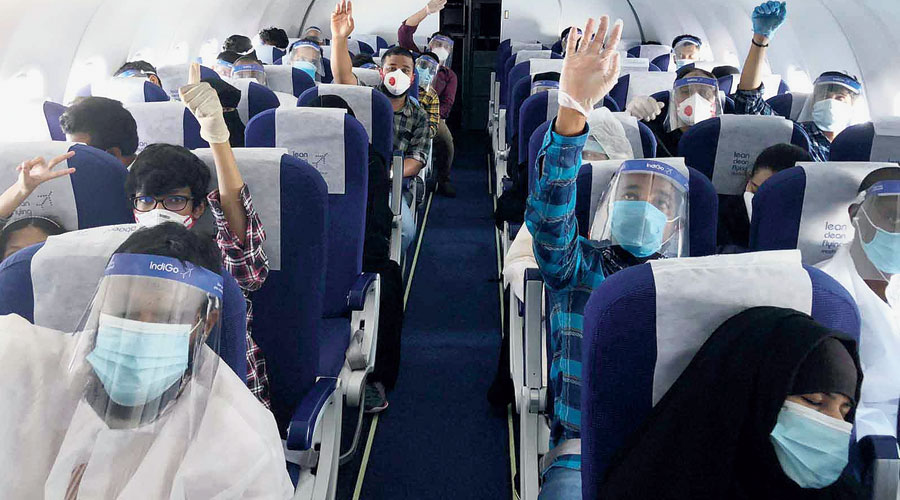India’s health ministry has issued new protocols for incoming international travellers intended to ensure that anyone infected with either the UK, South African or Brazilian coronavirus variants — a source of concern among scientists worldwide — are detected and isolated.
All incoming travellers who have been to the UK, South Africa or Brazil over the previous 14 days would need to be tested at airports on arrival, according to the protocols to come into effect from February 22. Passengers in transit would be able to leave airports after they are found negative.
Incoming travellers from these countries found positive would be isolated and their samples sent for viral genome sequencing.
Disembarking passengers who are found negative would need to home quarantine themselves for seven days after which they would be tested again.
The protocols would also require airlines to segregate passengers with a travel history from the UK, South Africa or Brazil in flight and on disembarkation. They also require all passengers on flights from the UK, Europe or West Asia to take self-paid molecular tests at their airports of entry.
Under existing protocols, passengers from the UK are already being tested on entry and — if detected positive — their samples sent for viral genome sequencing. All incoming passengers should carry an RT-PCR negative test result obtained within 72 hours before the flight.
The new protocols come amid growing concerns that the coronavirus variants from the UK, South Africa and Brazil are driving epidemics in their country of origin.
The UK variant has spread to 86 countries, the South African to 44 countries and the Brazilian to 15 countries.
Health officials had announced earlier this week that they had detected the UK variant in 187 people who had tested positive, the South African variant in four travellers who had arrived from African countries and the Brazilian variant in one traveller.
A senior scientist associated with the sequencing effort had told The Telegraph earlier this week that there was no evidence so far that either the UK or the South African variant have had any effect on the epidemic in India. There is no evidence of clustering or unusual trends or reinfections, he had said.
Scientists believe that in addition to the special screening of travellers from the three countries, there is also a need to document coronavirus variants circulating within India and determine how, if at all, they might be influencing the epidemic’s patterns.











